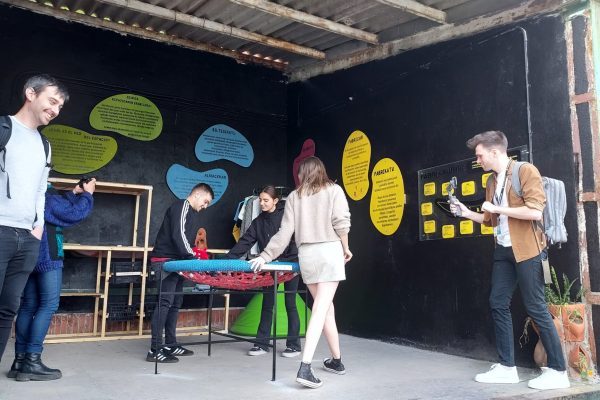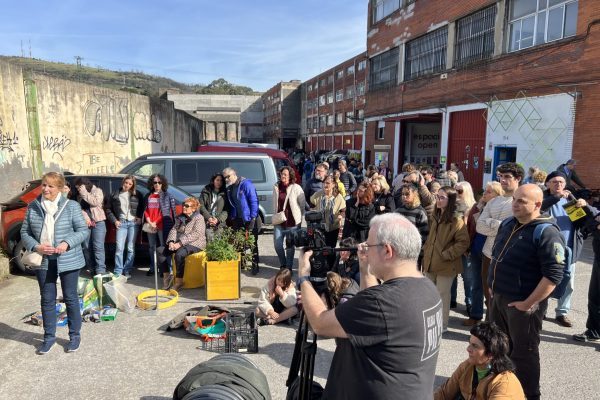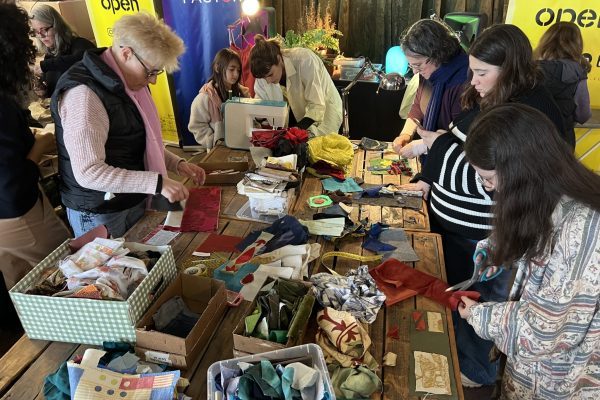Toolbox in Action
Explore how participatory meanwhile interventions unfolded in the context of seven regeneration initiatives across Europe & Asia.
Particularly suggested for policy-makers, practitioners, and researchers.
Highlights
Zorrotzaurre Bilbao



Extract of an interview with the T-Factor team at Bilbao Ekintza, December 2023.
Overcoming inertia and mistrust
‘Our involvement in T-Factor has been shaped by the existing context and stage of the regeneration process. The challenges we encountered are tied to past events and relationships established before T-Factor. Citizens and local residents initially viewed us with scepticism, and this was a significant challenge. Although we’ve made strides, the past three years have seen rapid changes in the area. With the onset of construction and demolition of old buildings, residents’ apprehensions only grew. However, a turning point for us was the actual construction of our temporary prototypes. When they witnessed tangible progress, their perspective shifted. This tangible action, more than just words, began to alter their perceptions. This helped us start to gain the community’s trust.’
Collaboration and trust building
‘I’d like to touch upon the intricacies of designing, planning, and executing activities among various local partners. Take, for instance, the situation with Zorrotzaurre, we’re not based on the island, making it challenging given the constant changes there. Beyond infrastructural changes, there are pressing social challenges. The presence of many migrants living in abandoned buildings has led to tensions. Residents feel neglected, and certain areas on the island evoke feelings of insecurity and fear. Through our efforts, we aim to give voice to not just the residents but also students, university staff, and professionals on the island. The aim for us is to establish a collaborative environment that brings all partners together to enhance the quality of life for the residents. Often, I feel that a more hands-on, face-to-face approach would be beneficial, yet it’s not always feasible.‘
Learning to coexist
‘One valuable lesson is that when working together across different people and organisations, unanimous agreement isn’t always achievable. What’s vital is learning to coexist with these differences and disagreements. This is a significant part of our collective learning journey. The human factor is pivotal for the project’s success. It’s crucial to recognise that projects aren’t just about institutions; they’re about people.’
Civic Design Council
‘In terms of our collaborative approach, our journey began with meetings within the local coalition. When we initiated the co-creation program for the prototypes, we expanded our collaboration to include universities, educators, and professionals. This led to the formation of three distinct groups for each prototype. We maintained regular bi-weekly meetings, ensuring structured interactions. Perhaps what needed improvement was the inter-group coordination. However, the introduction of the Civic Design Council, which brings together prototype working groups and local coalition members, has been pivotal. It helped in creating a unified narrative and vision, aligning our efforts.’
Celebrating success amid challenges
‘One of the key accomplishments was the unwavering commitment from higher education institutions. Universities were deeply involved from the outset. Their dedication is evident in their continued participation in the Civic Design Council. Furthermore, grassroots initiatives have played a pivotal role. Their in-depth local knowledge and connections to island stakeholders have been crucial in gathering insights and feedback. Another standout achievement was the active engagement of students in the project. It wasn’t just the institutions or their faculty but the students themselves who were deeply involved. Roughly 90 students from three different universities [Mondragon University, University of Deusto and IED Kunsthal] immersed themselves in the project, interacting with the island’s residents and actively participating in on-the-ground activities. Their enthusiasm and hands-on approach have been a highlight of this journey’.
Expanding the understanding of the ‘meanwhile’
‘I’d like to emphasise a significant shift in our understanding of “meanwhile” in Bilbao. Historically, when we discussed “meanwhile,” it was deeply connected to the island’s past and its association with Zorrotzaurre. We had confined the idea of temporary uses to what has transpired on the island. However, we’re now realising that temporary uses encompass much more than just the events that have unfolded in Zorrotzaurre. Our broader understanding now sees the potential of temporary uses in urban development. For instance, our Invest Bilbao department, responsible for attracting city investments, is exploring temporary uses to invigorate new city areas’.
Legitimacy
‘It’s imperative to address the issue of legitimacy. Our challenge isn’t just about the local community not recognizing us as their representatives; it’s also an internal struggle. To truly represent the municipality, we need to be empowered and align ourselves with a clear narrative, in this case, the T-Factor narrative. When we chose to join this project, we committed to its overarching message. Yet, surprisingly, a significant part of my efforts has been directed inward, towards building consensus and understanding within our own institution. City councils are vast entities with diverse perspectives and interpretations, making it a challenge to find common ground. I believe many of my peers in other cities likely face similar challenges. Our internal dynamics can influence how we approach external issues. Additionally, this project has been transformative for me on a personal level. Before embarking on it, I leaned heavily towards the viewpoint of the neighbours. But having delved deeper into the island’s intricacies, I’ve gained a broader perspective. My understanding and approach as a civil servant have evolved, distinct from my personal beliefs as a citizen.’
Privacy Overview
| Cookie | Duration | Description |
|---|---|---|
| cookielawinfo-checkbox-analytics | 11 months | This cookie is set by GDPR Cookie Consent plugin. The cookie is used to store the user consent for the cookies in the category "Analytics". |
| cookielawinfo-checkbox-necessary | 11 months | This cookie is set by GDPR Cookie Consent plugin. The cookies is used to store the user consent for the cookies in the category "Necessary". |
| CookieLawInfoConsent | 1 year | Used to save user's preferences about the cookies. |
| PHPSESSID | session | Preserves user session state across page requests. |
| viewed_cookie_policy | 11 months | The cookie is set by the GDPR Cookie Consent plugin and is used to store whether or not user has consented to the use of cookies. It does not store any personal data. |
| Cookie | Duration | Description |
|---|---|---|
| _ga | 2 years | This cookie is set by Google Analytics. It is used to identify unique users and it expires after 2 years. |
| _gat | 1 minute | This cookie is set by Google Analytics. It is used to by Google Analytics to throttle request rate. |
| _gid | 24 hours | This cookie is set by Google Analytics. It is used to identify unique users and it expires after 24 hours. |